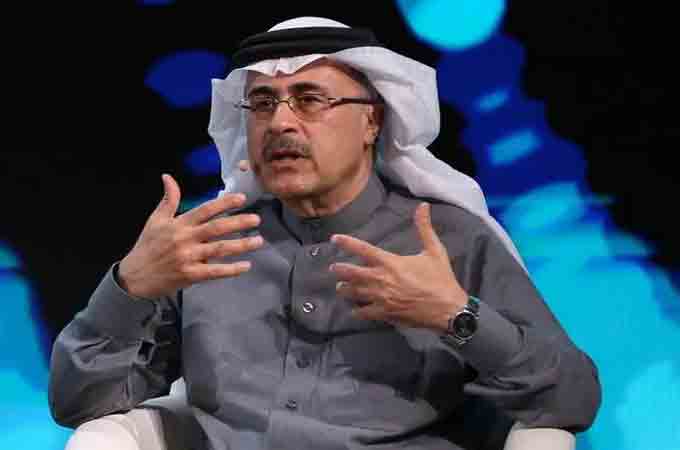Aramco President & CEO Amin H. Nasser has highlighted the crucial role of oil and gas during times of conflict, claiming that hydrocarbons would remain a crucial part of the energy mix in the coming years.
He was delivering a video address at the Energy Asia 2025 conference being held in Kuala Lumpur, Malaysia.
A premier forum that focuses on Asia’s key role in the energy transition, Energy Asia this year centres around the theme 'Delivering Asia’s Energy Transition' and brings together energy and industry professionals and policymakers to help shape Asia’s energy future.
While the Aramco chief did not specifically mention the ongoing Israel-Iran conflict, he noted that history has shown "that when conflicts occur, the importance of oil and gas cannot be understated."
"We are witnessing this in real time, with threats to energy security continuing to cause global concern," Nasser told the audience at the Energy Asia 2025 conference through the video message.
Nasser said reality had revealed a transition plan that’s been oversold and under-delivered for large parts of the world, especially Asia. "We were told it would be rapid, painless, and inevitably mean the collapse of conventional energy. Yet oil demand still exceeds 100 million barrels per day, with no sign of collapsing. Why?," he stated.
Because real-world challenges have exposed deep technical, economic, political, and social flaws in the original narrative.
"For one thing, the transition is incredibly expensive. Reaching net-zero could cost up to $200 trillion. For another, public doubts are growing as fairytale fantasies meet reality on the ground. People see that renewables, while important and growing, are far from ready to shoulder the burden intended and the risk that exists,"" said Nasser.
"As a result, energy security and affordability have at last joined sustainability as the transition’s central goals. Pragmatism is replacing idealism. And that is a good thing, particularly for Asia," he stated.
As the engine of global growth and the world’s largest energy-consuming region, Asia accounts for almost half of global demand. Without Asia’s needs and resources in the equation, the transition has no mass, no momentum, no chance! And Asia will need a lot more energy… from every source, said the Aramco chief.
"Yet wind, solar, and EVs aren’t even meeting today’s demand growth, let alone tomorrow’s. That’s why oil and gas remain a crucial part of the energy mix. They will be central to meeting rising demand and protecting energy security. But let me be clear: further reducing emissions from these critical sources will also be mission-critical," he noted.
"Because the goal is not to abandon traditional energy. It’s to improve it, while expanding new solutions at a realistic pace. And each country must have a flexible, tailored energy strategy they can deliver. Based on where they are today… and what they can afford," said the top official.
While accepting that transition will not be smooth sailing or pain-free… especially in an increasingly volatile and uncertain world.
"Because history tells us many things. It’s shown us that when conflicts occur, the importance of oil and gas can’t be understated. We are witnessing this in real time, with threats to energy security continuing to cause global concern. History also tells us that new energy sources don’t replace the old. They add to the mix," noted Nasser.
That’s why, above all, history tells us we need collaboration. Government, industry, innovators all have a role to play – in new and conventional energy, said the top official.
"So let’s ensure that Asia’s transition voice matches its economic voice. Let’s deliver a future that is secure and affordable as well as sustainable. And let’s move to a plan that’s grounded in reality. But where the sky’s the limit if we focus on prosperity and progress… for everyone," he added.-TradeArabia News Service































